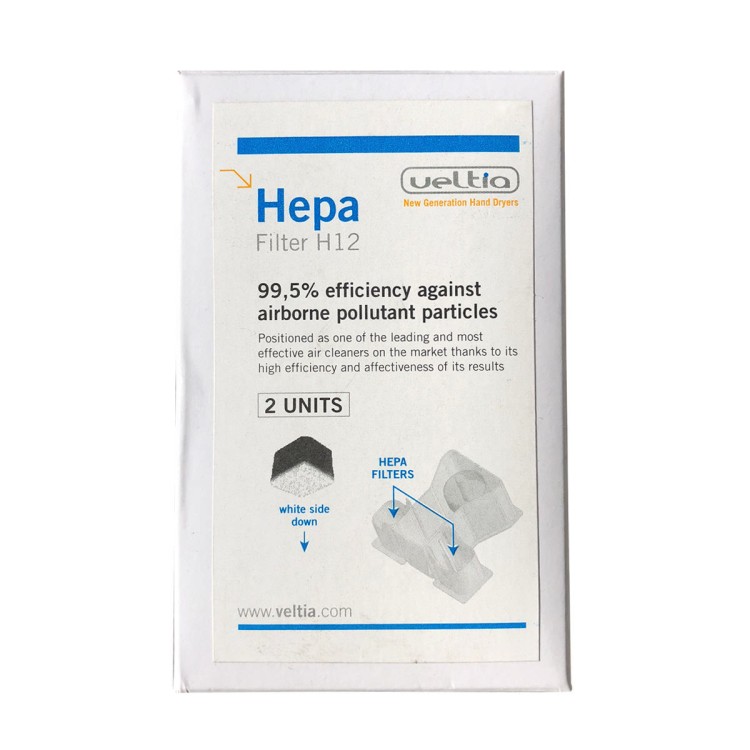HEPA Filter - 1 per box
- Product Code: H12
- Availability: In Stock
-
$46.06
3 Easy payments
- Ex Tax: $46.06
Available Options
Payment Profile
- Manufactured In Europe
- Free Delivery
- Plug In Or Hard Wire
What Is a HEPA Filter?
HEPA (High-Efficiency Particulate Air) filters are mechanical air filters designed to capture 99.97% of particles as small as 0.3 microns. Originally developed during the 1940s for nuclear research, they’re now widely used in homes, hospitals, and industries. To earn the “True HEPA” label, filters must meet strict standards set by agencies like the U.S. Department of Energy.
Key to their effectiveness is their dense fiber structure, which traps contaminants through three mechanisms:
- Interception: Particles stick to filter fibers mid-air.
- Impaction: Larger particles collide with fibers and embed themselves.
- Diffusion: Microscopic particles zigzag unpredictably, increasing their chance of capture.
What Is a HEPA Filter Vacuum?
A HEPA filter vacuum integrates a HEPA filter into its design, preventing captured dust from being recirculated into the air. Standard vacuums often expel microscopic particles through exhaust, worsening indoor air quality. HEPA vacuums, however, are critical for allergy sufferers, asthmatics, or pet owners, as they reduce exposure to irritants.
How Does a HEPA Filter Work?
The magic lies in the filter’s layered fiber matrix. The 0.3-micron benchmark isn’t arbitrary—it’s the “Most Penetrating Particle Size” (MPPS), where particles are hardest to capture due to their balance of size and airflow behavior. By optimizing performance at this size, HEPA filters efficiently trap both larger particles (like dust) and smaller ones (like bacteria).
What Does a HEPA Filter Do?
HEPA filters improve indoor air quality by removing harmful particulates. Benefits include:
- Reduced allergy and asthma triggers.
- Lower risk of airborne illnesses (e.g., capturing virus-laden droplets).
- Cleaner surfaces in homes and sterile environments like labs.
How to Clean a HEPA Filter
Cleaning HEPA filters requires caution:
- Check the Label: Only washable filters should be rinsed; others may degrade.
- Dry Methods: Tap gently or use a soft brush to dislodge debris.
- Avoid Water Pressure: Soaking or scrubbing can damage fibers.
Trade-offs and Challenges
- Cost vs. Quality: True HEPA systems are pricier upfront and require costly replacements, but they offer long-term health benefits.
- Suction Power: Dense HEPA filters may strain vacuum motors, though modern designs often mitigate this.
- Consumer Confusion: Marketing terms like “HEPA-type” can mislead buyers. Always look for certifications like “True HEPA” or “HEPA H13/H14.”


